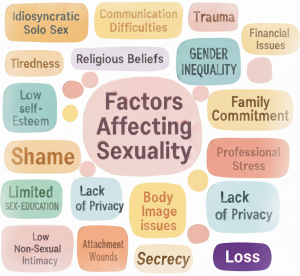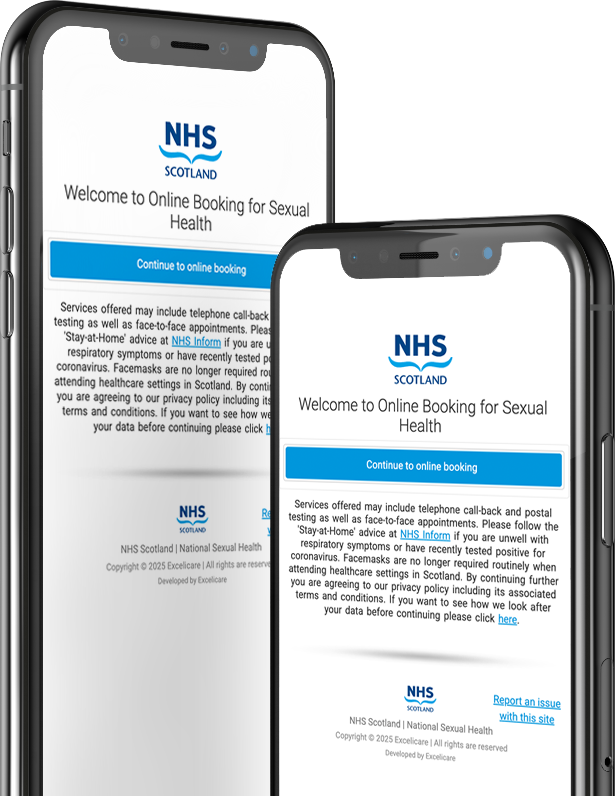
Psychosexual Therapy

What Is Psychosexual Therapy (also called Sex Therapy)?
Whether you’ve been referred by your healthcare provider or are exploring psychosexual (or sex) therapy on your own, it’s helpful to understand what this approach involves.
Psychosexual therapy supports sexual health beyond just physical, moral, or legal perspectives. It draws on the World Health Organization’s definition of sexual health, viewing it as a natural and important part of overall well-being:
“…a state of physical, emotional, mental and social well-being in relation to sexuality; it is not merely the absence of disease, dysfunction or infirmity. Sexual health requires a positive and respectful approach to sexuality and sexual relationships, as well as the possibility of having pleasurable and safe sexual experiences, free of coercion, discrimination and violence. For sexual health to be attained and maintained, the sexual rights of all persons must be respected, protected and fulfilled.” (WHO, 2006a)
This modality focuses on the sexual issue(s) you’re experiencing, whether it causes internal distress, relationship tension, or a sense of grief and explore contributing factors using a bio-psycho-social model:
Biological: How might your body, health conditions, or physical sensations be influencing the issue?
Psychological: What are your beliefs, thoughts, emotional patterns, and inner processes?
Social: How do your relationships, roles, culture, and environment impact your sexual wellbeing?
Your therapist will help assess these areas with you, clarify your goals, and explore what’s realistic within the resources and time available. Some factors can be addressed or changed while others may need to be accepted or grieved. At times, psychosexual therapy alone may not be enough, and referrals for medical, psychological, or social support may be needed.
This is all part of the therapeutic process.
Above all, this is a safe space to talk safely and openly about sex, sometimes for the first time, therefore, it’s not unusual to feel nervous or apprehensive initially, however, the therapist should move at your pace, with no pressure to disclose more than you’re ready.

Rethinking Sexual Wellbeing
Sexual health is often narrowly defined in terms of the absence of STIs, unplanned pregnancy, or abuse. Culturally, we tend to focus on a “freedom from harm” perspective, rather than also embracing sexual health as something that includes pleasure, autonomy, and empowerment. In reality, both are essential, and deeply interconnected. There can be no uplifting pleasure or liberation in the presence of harm and oppression, as much as genuine safety must include the freedom to fully inhabit and express one’s sexual preferences and identity.
Sexual health is rooted in balance, freedom, truth, and personal agency. Yet, connecting with this perspective can be challenging, especially when most of our sexual education has focused solely on risk prevention, rather than empowerment. We’re rarely encouraged to actively, consciously, and unapologetically explore our own erotic narratives and sexual identities, nor to approach others’ experiences with curiosity and respect.
The Six Principles of Sexual Health (Braun-Harvey, 2009) provide a foundational framework for understanding our sex lives in a safe, sex-positive, and affirming way.
1 – Consent
2 – Non-exploitation
3 – Honesty
4 – Shared Values
5 – Prevention from Sexually Transmitted Infections, Blood Borne Infections and Unwanted Pregnancies
6 – Pleasure

What types of concerns can be addressed through psychosexual therapy?
Body image concerns related to sex or gender: Negative feelings or discomfort about one’s body affecting sexual confidence or identity.
Compulsive or out-of-control porn use (“porn addiction”): Repeated, uncontrollable consumption of pornography that disrupts daily life or relationships.
Compulsive sexual behaviour (“sex addiction”): Persistent, excessive sexual thoughts or actions despite negative consequences.
Dyspareunia: Pain during sexual intercourse.
Low or mismatched desire: Reduced or differing levels of sexual interest between partners.
Pleasure or orgasm problems: Difficulties achieving sexual pleasure or orgasm.
Premature or delayed ejaculation: Ejaculation that occurs too quickly or is significantly delayed during sex.
History of sexual trauma: Past sexual abuse or physical trauma impacting present sexual experiences.
Sex-related shame, guilt, confusion or anxiety: Negative emotions or uncertainty about one’s sexuality.
Unreliable erections (“erectile dysfunction”): Difficulty achieving or maintaining erections which are sufficient for engaging in satisfying sex.
Sexuality and pleasure with neurodivergence: Navigating sexual experiences while living with neurodivergence.
Sexuality and pleasure with spinal cord injuries: Exploring sexuality after injury affecting sensation or mobility.
Sexuality and pleasure with chronic illness: Managing sexual wellbeing alongside ongoing health conditions.
Sexuality and pleasure during peri-menopause, menopause: Navigating changes in sexual function and desire due to hormonal shifts.
Vaginismus: Involuntary muscle tightening that makes vaginal penetration painful or impossible.
Vulvodynia: Chronic pain or discomfort in the vulvar area without any identified medical cause.

What are usual contributing factors of psychosexual issues?
Although psychosexual therapy centres on sex, the roots of sexual difficulties often lie elsewhere. Because sex is such a private and often taboo subject in our culture, it tends to absorb the weight of unspoken expectations, unresolved emotions, and external pressures.
You might be coping well in day-to-day life, but intimacy invites vulnerability, and that’s where hidden struggles often resurface. It’s no surprise, then, that these deeper issues can show up in your experiences with solo or partnered sex. This response is human, and entirely natural.
This is why therapy can sometimes feel worse before it gets better. Difficult thoughts or feelings will arise, sometimes, ones that were previously pushed aside in order to cope. While this can be uncomfortable, it constitutes a meaningful part of the healing process too.
Non-exhaustive list of potential contributing factors to sexual issues (Sheila Youcef, 2025):


You’re Not Alone in Wondering: Real Questions, Straightforward Answers About Sex Therapy
Is what I’m experiencing normal?
You might feel that what you are experiencing is “abnormal,” but it is important to remember that our society is still not used to openly talking about sex. As a result, many people keep their struggles private which can feel quite isolating. Psychosexual issues are actually very common and can affect up to half of the population in some cases.
Will you judge me for what I tell you?
COSRT-registered Psychosexual Therapists are committed to providing a safe, sex-positive, and empathetic space, free from judgment. Many training providers also include anti-oppressive practices to help therapists better understand the power dynamics and forms of oppression that may be present both inside and outside the therapy room.
Do you talk about my problems with anyone else?
Everything you share in therapy is confidential and/or anonymised. A discharge letter is sent to your GP once your therapy is completed; however, it only contains information necessary for the continuation of care. Any other potential breaches would be discussed with you first (e.g., for other referrals). The only exception is if there is a risk of harm to yourself or others, in which case the therapist, their supervisor, and the service management team would act to keep you and others safe.
Do you have to touch me, or will there be physical contact?
No, psychosexual therapy is a talking therapy and does not involve any physical contact or examination.
Can therapy really help if I’ve struggled with this for years?
Psychosexual therapy can be helpful even if you have been experiencing difficulties for many years. Its effectiveness varies and depends on your individual circumstances, contributing factors, and your engagement in the therapeutic process.
What if my fantasies or desires are unusual, will you think less of me?
Psychosexual therapists are trained to cultivate awareness and unconditional acceptance of the wide variety of human sexual preferences and interests. They are experienced in working with kink, fetish, and GSRD (Gender, Sexual, and Relationship Diversity). However, like all healthcare professionals, they have a duty to safeguard and cannot provide support or maintain confidentiality for preferences involving illegal, harmful, or non-consensual actions.
Is it okay if I don’t even know what I want sexually?
It’s perfectly okay to feel confused or unsure about your sexual desires, and psychosexual therapy can offer a safe space to explore and reflect on them.

How do I access psychosexual therapy?

Useful links and resources
COSRT: https://www.cosrt.org.uk/
World Health Organisation for Sexual Health: https://www.worldsexualhealth.net/
Pink Therapy: https://pinktherapy.com/
The Pelvic People Blog: https://thepelvicpeople.com/blogs/journal
The Vaginismus Network: https://www.thevaginismusnetwork.com/
Relationships Scotland: https://www.relationships-scotland.org.uk/
Sexpression: https://www.sexpression.org.uk/
The Vulva Gallery: https://www.thevulvagallery.com/
Pillow Talk Scotland: https://www.pillowtalk.scot/
RELATED PAGES

